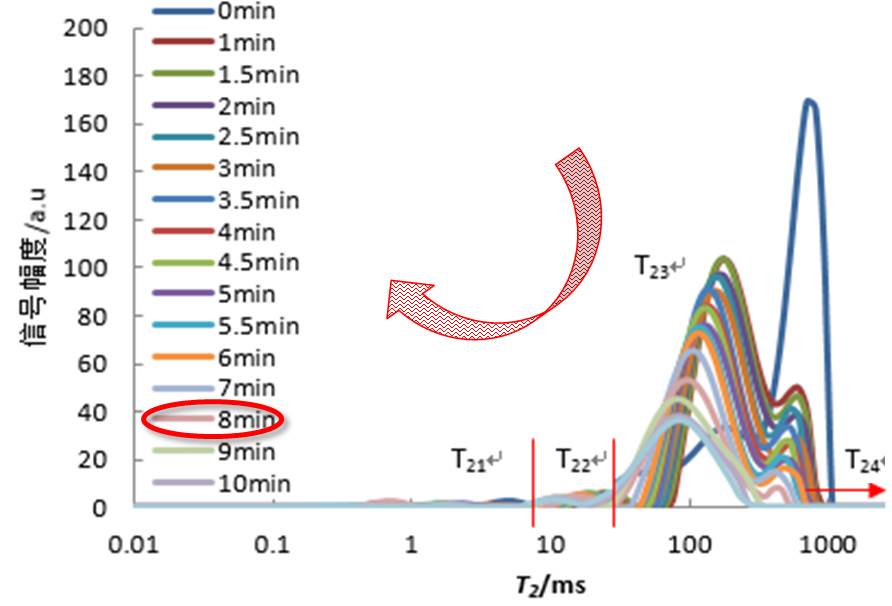Low-field NMR Technology Used in Moisture Analysis of Food and Agricultural Products
RMN de campo bajo (RMN-LF) and its imaging technology (resonancia magnética) have been researched and applied in the direction of food and agricultural products due to their rapid detection, no destructivo, and simultaneous acquisition of sample signal information in time and space. . This article briefly describes the application of low-field NMR technology in the moisture analysis of food and agricultural products, as well as in the processing and storage of agricultural products.
Moisture is one of the main components of food. Its content, distribución, fluidity, and changes directly affect the appearance, estructura, rheological properties, estabilidad, sensitivity to microorganisms and shelf life of the food system. The methods of measuring water content include drying method, distillation method, Karl Fischer method, conductivity measurement method and near-infrared spectroscopy. The above methods either need to be improved in measurement accuracy and sensitivity or may damage the integrity of the sample.
For the determination of water molecule binding capacity and fluidity in food, traditional methods can only obtain a small amount of information about the physical state of water in the food. Además, effective monitoring, and control of moisture movement in food will have a positive meaning for predicting product shelf life and improving product stability. This requires a method that can effectively detect the spatial distribution information of moisture in the sample.
RMN de campo bajo analysis and imaging technology, as a rapidly developing technology in recent years, has significant technical characteristics when applied to moisture measurement: the technology is non-destructive and non-polluting to the sample; the measurement is rapid and accurate; it can simultaneously obtain samples in the time domain and The spatial information can obtain the relaxation time distribution of the moisture in different states of the whole sample and the images of any internal layer, which is convenient for studying the internal structural characteristics of the sample.
Application of low-field NMR technology:
●Moisture content measurement
En los primeros días, low-field NMR technology has been maturely applied to research seeds, wood, food and other water content testing. The intensity of the NMR signal is directly proportional to the content of H protons, and the amount of signal that can be passed corresponds to the water content.
●Research on T2 distribution and fluidity of water
The low-field NMR technique can not only quickly and accurately measure the water content of the sample, but also obtain the T2/t1 relaxation time distribution diagram of the sample and observe water components with different fluidity. For different foods and agricultural products, la T2 relaxation time distribution map obtained by low-field NMR technology is different. Por ejemplo, in the T2 relaxation spectrum of water in meat and meat products, three types of water can generally be obtained.
●Study on changes in water mobility
The difference in processing technology will change the distribution and fluidity of water in food and agricultural products, and low-field NMR technology can quickly and accurately capture this change. Due to the detection period of low-field NMR technology, there is no need to process samples, and process change detection can be realized, providing powerful detection tools for enterprise production process monitoring and process adjustment.
RMN de campo bajo technology is widely used in the determination of moisture content, moisture distribution and fluidity changes in food and agricultural products, and the correlation between its edible quality, processing and storage characteristics has been studied, which can realize rapid and dynamic prediction and Control the quality of food and agricultural products. With the increasing maturity and rapid development of domestic low-field NMR equipment, the cost of using instruments in domestic counterparts has been greatly reduced, and low-field NMR technology will play an increasingly important role in food moisture analysis.
 mohoso
mohoso


